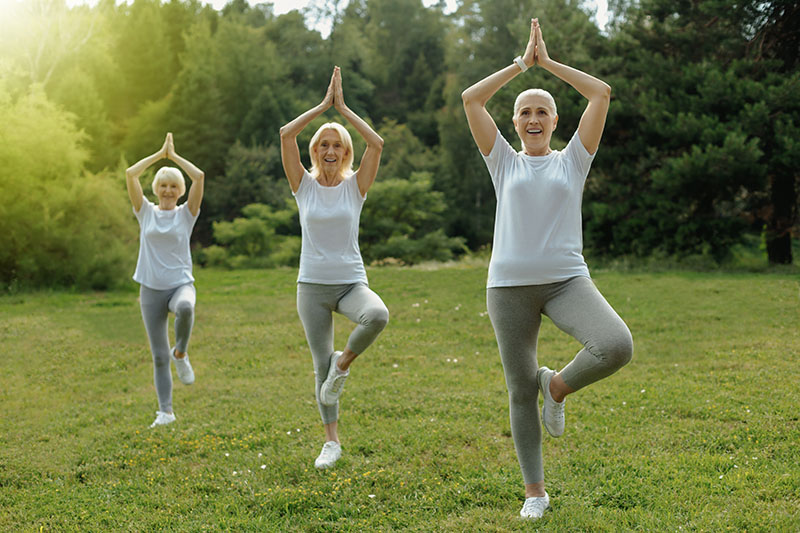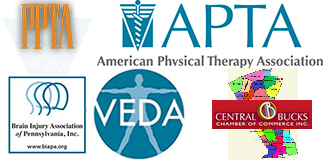As a Vestibular specialist, many patients ask me how to prevent another vestibular event or a fall. Good balance comes from a healthy vestibular system, visual system, and proper input from sensory nerves and muscles. These systems work together to help us move and react, maintaining good balance.
As we age, the vestibular system changes. The hair cell neurons of the inner ear reduce in number, and the postural organs of the ear, the utricle and saccule, also decline in function. This can affect postural reactions and coordination involved in maintaining balance. Otoconia from the utricle and saccule also become more likely to break loose from these organs, causing benign paroxysmal positional vertigo (BPPV), a condition that we frequently treat in vestibular therapy.

How can we slow down the aging process to help our balance?
Exercise that includes changing surfaces to challenge your muscles and postural reactions and head movement added to exercise to make your vestibular system work harder can all improve your balance. Your vestibular therapist can teach you How to incorporate these into your regular workout.
Maintaining good health is important in aging well. Some health issues affect the vestibular system more directly than others. Hypertension affects the inner ear since the ear is susceptible to changes in blood flow. The vestibular system’s microcirculation is reduced by hypertension, which can lead to loss of function in the vestibular system. We tend to focus on the circulation to our heart and brain, but issues from reduced blood flow can also occur in the inner ear organ.
Diabetes Mellitus also affects the microcirculation of the inner ear and the peripheral nerves, sometimes causing peripheral neuropathy. Patients with diabetes are 70% more likely to have vestibular and balance deficits, so properly managing your diabetes with exercise and medication is important for good balance.
Exercise has positively affected hypertension, diabetes, circulation, sleep, and many other health factors that impact balance. A physical therapist trained in vestibular rehabilitation can examine how your balance systems are working and help you figure out how to exercise and work on your balance safely.
Wendy Webb Schoenewald, PT, OCS
WWS Physical Therapy and Vestibular Rehabilitation
Doylestown, PA.
(215) 489-3234

Leave a Reply